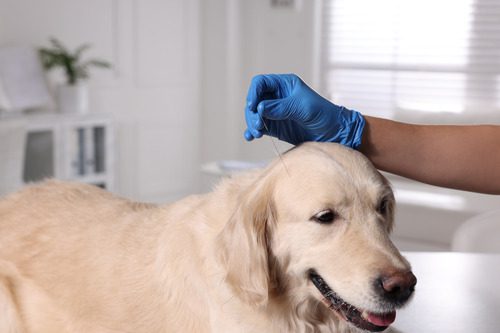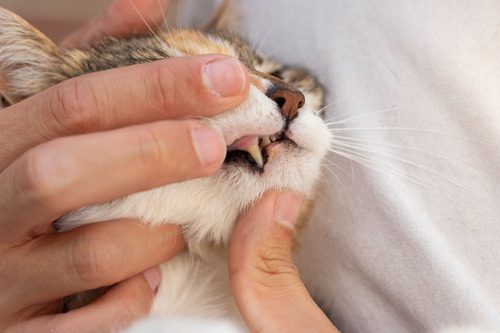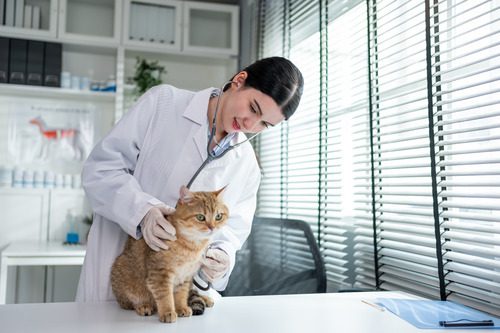Dog Acupuncture: Does It Really Work?
Dog acupuncture might sound unconventional to some, but this holistic treatment has gained popularity in veterinary medicine over the last few decades. As more pet owners explore integrative options for pain relief, arthritis management, and mobility improvement, dog acupuncture continues to spark curiosity and questions. Does it really help? Is it safe? What conditions can it treat? If you’re exploring alternatives to traditional medication or surgery for your dog, acupuncture may offer a worthwhile solution. Keep reading to learn how this treatment works, what to expect, and how it may support your dog’s quality of life.

What Is Dog Acupuncture?
Dog acupuncture is a therapeutic technique rooted in traditional Chinese medicine, adapted for use in modern veterinary care. It involves inserting very fine needles into specific points on a dog’s body to stimulate nerves, improve circulation, and release natural pain-relieving chemicals. These acupuncture points correspond with energy pathways or meridians that are believed to influence different organs and systems within the body.
Veterinarians who offer dog acupuncture often integrate it with Western diagnostics and treatment plans. This approach allows them to target a wide range of chronic and acute conditions without relying solely on medication or invasive procedures. While it doesn’t “cure” disease, it may provide significant relief and improve day-to-day functioning in many dogs.
How Dog Acupuncture Works in the Body
Acupuncture stimulates a dog’s nervous system, encouraging the body to release endorphins and other neurotransmitters that help reduce pain and inflammation. The treatment also promotes blood flow to affected areas, helping tissue repair and reducing muscle tension. While some aspects of acupuncture are still being studied, both anecdotal reports and clinical experience suggest that it may offer several benefits when used in conjunction with conventional veterinary care.
Neurological Effects
The insertion of acupuncture needles activates sensory neurons and stimulates nerve pathways. This can influence the brain’s perception of pain and trigger the release of natural opioids. Dogs with neurological conditions such as intervertebral disc disease or nerve damage may respond well to acupuncture treatments aimed at improving nerve function.
Circulatory and Musculoskeletal Support
Improved blood flow is one of the primary goals of acupuncture. When blood circulates efficiently, damaged tissues receive more oxygen and nutrients, which can help speed recovery. This effect is especially helpful for dogs dealing with muscle stiffness, joint issues, or healing from orthopedic surgeries.
Conditions Commonly Treated with Dog Acupuncture
Veterinarians often recommend dog acupuncture for chronic conditions, age-related discomfort, or as a complement to post-operative care. Below are several examples where acupuncture may be beneficial.
Arthritis and Joint Pain
One of the most common uses for dog acupuncture is to manage arthritis. Older dogs or breeds prone to joint issues may experience stiffness, pain, and limited mobility. Acupuncture helps ease inflammation and support flexibility, making daily activities more comfortable.
Hip Dysplasia
Hip dysplasia often leads to muscle compensation, pain, and uneven gait. Acupuncture may help reduce the muscle strain surrounding the hip joints and improve comfort levels during movement.
Neurological Disorders
Conditions such as intervertebral disc disease (IVDD), degenerative myelopathy, and spinal trauma can affect nerve function and mobility. Acupuncture may stimulate nerve repair and assist in pain management, especially when used as part of a rehabilitation program.
Post-Surgical Recovery
After surgery, some dogs benefit from acupuncture as a supplemental therapy. It may ease pain and reduce the need for pharmaceuticals during recovery. This is particularly helpful for dogs that are sensitive to medication or prone to digestive upset from pain relievers.
Gastrointestinal Issues
Though less commonly known, acupuncture has been used to address gastrointestinal concerns like nausea, constipation, and appetite loss. The treatment targets points that influence the digestive system, potentially helping to restore balance.
What to Expect During a Dog Acupuncture Session
If you’re considering dog acupuncture at Cornerstone Veterinary Hospital of Clifton Park, here’s what the process typically involves. Every treatment is tailored to your dog’s specific needs, based on a detailed evaluation by a licensed veterinarian trained in acupuncture.
Initial Evaluation
Before acupuncture begins, your veterinarian conducts a thorough physical exam and reviews your dog’s medical history. This evaluation helps determine which acupuncture points should be used and whether your dog is a good candidate for this treatment.
The Acupuncture Procedure
During the session, your vet inserts thin, sterile needles into selected points. Most dogs tolerate this very well. The needles remain in place for 10 to 30 minutes, depending on the treatment plan. Some dogs become very relaxed, many even fall asleep during the session.
Follow-Up Treatments
Multiple sessions are usually recommended, especially for chronic conditions. Some dogs respond after just a few visits, while others may need regular treatments to maintain results. Your veterinarian will help determine a schedule that fits your dog’s response and health goals.
Is Dog Acupuncture Safe?
When performed by a qualified veterinarian, dog acupuncture is generally considered safe. Side effects are rare, and most dogs tolerate the treatment without issue. It’s essential to choose a vet who has undergone additional training in veterinary acupuncture to ensure proper technique and care.
Choosing the Right Provider
Always look for a licensed veterinarian certified by an accredited organization such as the International Veterinary Acupuncture Society (IVAS) or the Chi Institute, including our very own Dr. Briceland. Certification ensures your vet has completed extensive education and hands-on experience in veterinary acupuncture.
Are There Any Risks?
Minor side effects like slight bruising or soreness at the needle site can occasionally occur but are typically short-lived. Acupuncture may not be suitable for dogs with bleeding disorders or those that cannot remain still during treatment. Your veterinarian will evaluate your dog’s condition and behavior before recommending acupuncture.
How Dog Acupuncture Fits into an Integrative Treatment Plan
Dog acupuncture is often most effective when combined with other treatments, including physical therapy, medications, or supplements. It offers a non-pharmaceutical option for pain relief and may reduce a dog’s reliance on drugs with long-term side effects. Our veterinarians at Cornerstone Veterinary Hospital of Clifton Park carefully assess whether acupuncture is an appropriate part of your dog’s care plan. We may recommend it as a supportive tool alongside diagnostics and ongoing treatment to help manage chronic issues or support recovery after surgery or injury.
Personalized Care for Lasting Results
Each dog’s condition and response to acupuncture is unique. Your veterinarian will monitor progress and make adjustments to the treatment schedule and points as needed. The goal is always to improve your dog’s comfort, movement, and overall wellness through a tailored, integrative strategy.
Ready to Explore Acupuncture for Your Dog?
If your dog struggles with chronic pain, mobility issues, or recovery challenges, acupuncture may be worth exploring. Our skilled veterinarians at Cornerstone Veterinary Hospital of Clifton Park are experienced in providing dog acupuncture as part of a thoughtful, individualized treatment plan. Whether your dog needs relief from arthritis or support after surgery, our team can help. Call (518) 383-6254 today to schedule an evaluation or request an appointment online. Our team will walk you through what to expect and help you decide if dog acupuncture is the right next step for your pet’s care.
Recent Posts
My Cat Lost a Fang Tooth: What Do I Do?
My Cat Lost a Fang Tooth: What Do I Do? It’s always a little jarring to discover…
FHO Surgery in Cats
FHO Surgery in Cats When a cat experiences hip pain that limits movement and quality of life,…
Can Cats Get Parvo?
Can Cats Get Parvo? Parvo is a word that strikes fear into the hearts of many dog…
About Us
Originally opened as Animal Care Hospital by Dr. Mark Johnston in 1989, the hospital became Cornerstone Veterinary Hospital in 2015 when it was purchased by Drs. Alan and Lisa Knott. The name 'Cornerstone' holds a special place in their hearts, representing not only their Christian faith but also their commitment to being the cornerstone of the community in which they practice. As a family-owned and operated practice, every pet is treated as part of the family, ensuring they receive the highest standard of care. The team at Cornerstone Veterinary Hospital is dedicated to building lasting relationships with clients and their beloved pets, striving to be the cornerstone of the community in which they practice.



